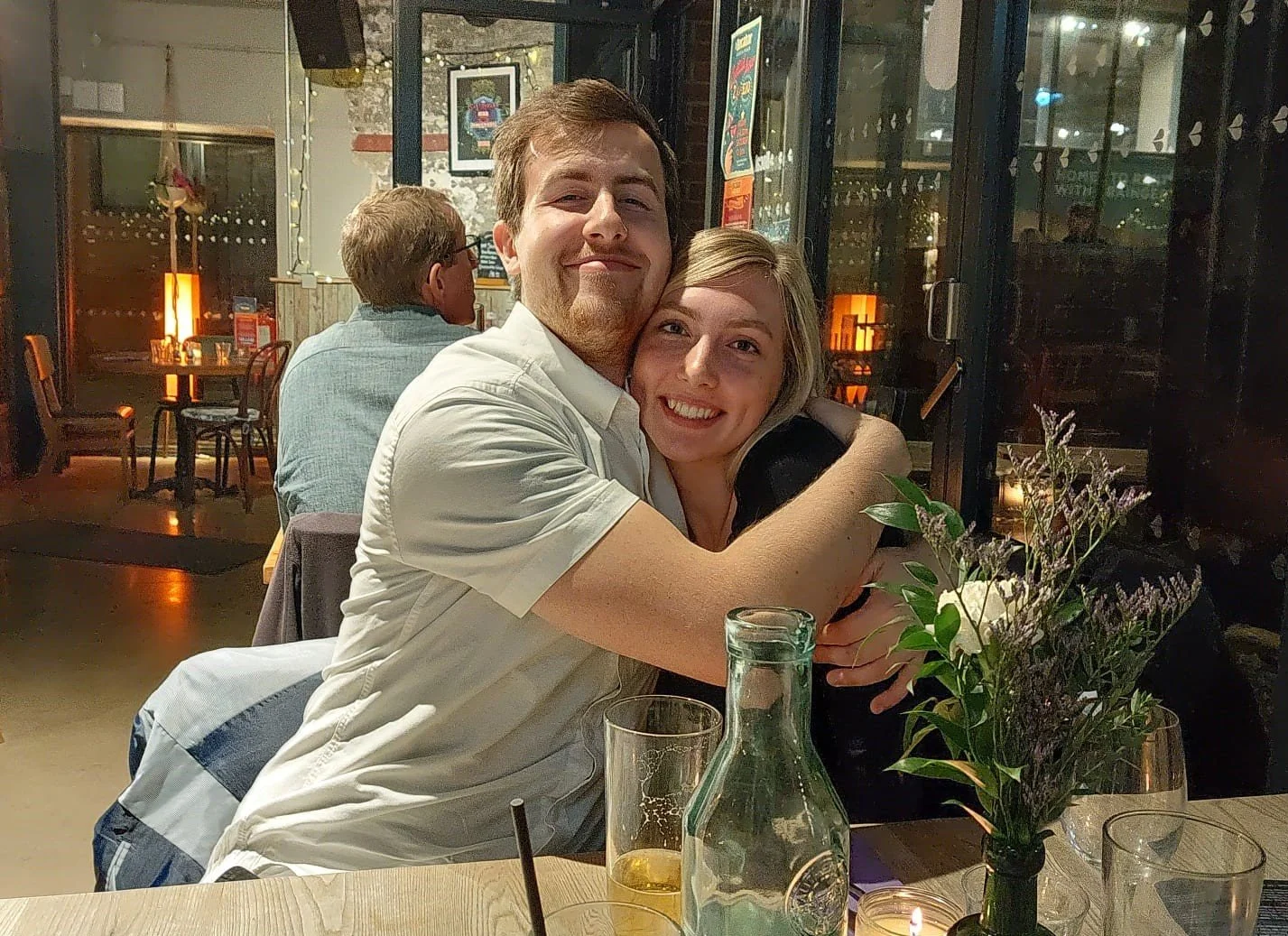Megan’s story
Megan and Gee
Megan’s brother Gee died in 2011. Here she shares her experience with grief.
My brother, Gee (my only sibling), died in 2011, and in a second, my world shifted on an axis.
He died as a result of substance misuse. He was a beautifully sensitive, funny, kind human being, and he was my best friend. He could also be super annoying, and I know I annoyed him too, but that’s siblings for you!
I felt lost without him; suddenly, I wasn’t a sister anymore, and that part of me felt utterly redundant. I was a siblingless sibling, and no amount of people trying to tell me otherwise helped. I felt immense sadness for him and the fact he wouldn’t get to experience all the things he should have and didn’t get to live his true potential.
“When a sibling dies away, we lose someone who often views the world through a similar lens to us, someone who understands the unique landscape of our shared upbringing.“
This bond creates a shared language, one built on childhood memories and experiences. In his absence, I mourned not just our past but also our present and the future we were supposed to have together. He was supposed to be my wingman through life, and I never envisioned navigating life without him.
I felt all of the emotions—anger, sadness, hurt, guilt, etc. But somehow (and it took a long time), I have managed to tap into feeling grateful for having him for the time I did.
Sometimes, well-meaning people don’t realise how much they can hurt grievers, and this can make things very difficult.
They may ask you why you aren’t over it by now, draw comparisons, or tell you they know how you feel. When they most certainly don’t.
Often, these people haven’t been through a life-shaking loss and can’t possibly comprehend what you are going through. My advice, in this instance, is to try to ignore them because you are the only person who is experiencing your exact grief. It’s hard to do in the moment, and feeling anger towards those is a pretty normal response, but it’s unlikely that they’ll comprehend what you are feeling.
In my experience, most people who have been through life-shaking losses don’t compare because we understand that each person’s loss is unique, just as their relationship was.
Therapy can be really helpful, as it gives us time to talk about what we are feeling with someone who isn’t emotionally involved without feeling judged. I found it so beneficial.
Although social media has its problems, there are wonderfully supportive grief communities online, and you can find people who just ‘get it’ but don’t compare.
“Grieving isn’t linear, and you can experience ups and down as you process loss.“
Sometimes, the ups can make you feel guilty. I remember thinking, ‘How can I be happy, or laugh when my brother is dead? I must be a terrible person’, but the truth is, you deserve to feel those moments of happiness, and I now know that my brother would want me to be happy.
Sometimes, even many years after losing my brother, I’m hit with a big wave of grief, and I tend to go with it. I allow myself to feel the sadness and pain, and I still feel it’s unfair that Gee died. I call it my ‘pity party’, and I think it’s perfectly healthy as long as I know when to leave the party. And these days it doesn’t take as long as it used to.
In my mind, time doesn’t necessarily heal all, but it can give you a buffer and over time, the grief doesn’t feel as raw.
I genuinely believe that you don’t ‘get over’ the loss, and I think it’s unreasonable for people to expect you to.
We move forward in life, carrying our losses with us learning to walk a road where happiness can coexist with our grief.





